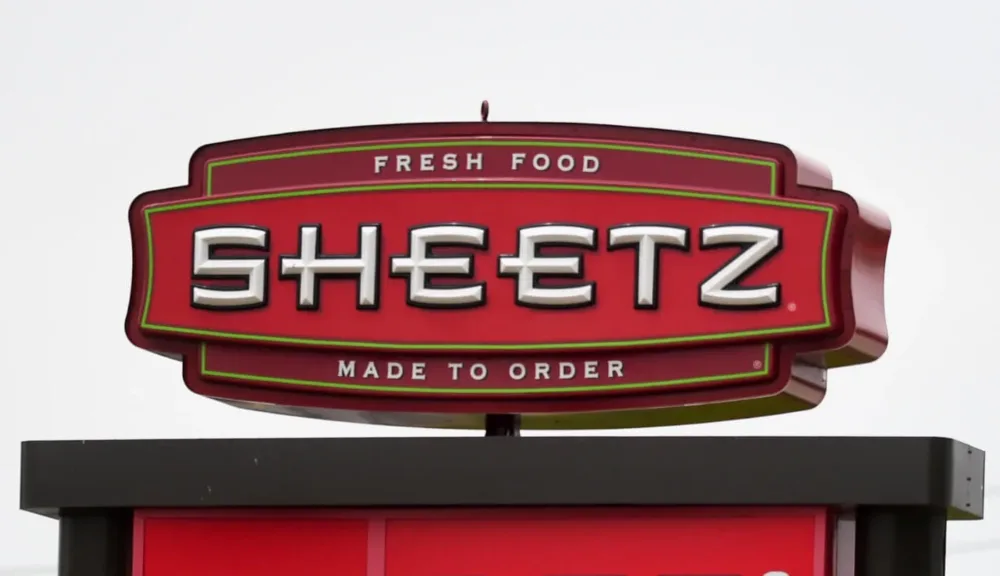
Cumru Twp, PA - June 1: The Sheetz gas station and convenience store on Lancaster Pike In Cumru Township Tuesday morning June 1, 2021. (Photo by Ben Hasty/MediaNews Group/Reading Eagle via Getty Images)
Calling all Western Pennsylvanians: There’s more than what meets the eye to this gas station, convenience store, and institution. Read on to learn five facts about Sheetz.
Sheetz has been a cornerstone of Pennsylvania culture and identity serving the state for over 70 years. Whether you’re craving some tater totz, a bacon and egg sammich, or chicken stripz, Sheetz is there to satisfy your cravings at all hours of the day and night.
But Sheetz is so much more than that—it’s one of the most successful family businesses in the entire state. Most Pennsylvanians have an opinion on the franchise, whether they’re a Sheetz lover or on team Wawa.
Read on for a deep dive into the history of Sheetz, including five interesting facts—or should I say, “factz” about this Pennsylvania institution
A Family Business That Didn’t End in “Z”
Sheetz wasn’t always spelled with a “z.” According to Pittsburgh magazine, Jerry Sheets married into a family of prominent dairy farmers that ran J.E. Harshbarger Dairy Co. When he attended a dairy conference, his last name was misspelled with a “z” at the end instead of an “s.” He liked it so much that he had it legally changed in the 1930s, and opened up Sheetz Dairy stores in the 1940s to sell excess milk.
But Sheetz didn’t become the store we know it as today until 1952, when Jerry’s son, Bob, purchased one of his father’s stores in Altoona. Bob and his brother Steve acquired a second store in 1963, and by 1972, the brothers owned 14 stores.
Today, the company is still owned by the Sheetz family, with many family members still active in the company. President and CEO Travis R. Sheetz hopes that more family members will join the company, but says there is no expectation. And while thoughts of 24/7 offerings of shwings and fryz are what we associate with Sheetz today, its origins in the dairy industry are pretty interesting.
From Dairy to Beer
Besides milk, there’s another beverage that Sheetz has taken a prominent interest in: beer.
In 2010, Sheetz spearheaded the “Free My Beer” campaign, which created a coalition to advocate for changing laws that, at the time, banned beer sales in convenience stores that sell gasoline. Sheetz collected over 130,000 signatures on petitions they had at stores, urging customers to share their views and contact their representatives. Stan Sheetz, who was the CEO at the time, spoke at a rally at the state capital, saying “We heard our customers’ cries of support loud and clear. Customers told us overwhelmingly, ‘Free My Beer!’”
Since then, not only can Sheetz sell alcohol in their stores, they have also partnered with several breweries to create their own beers. The first of these was in 2019 when Sheetz released their “Project Coffee Hopz” IPA with Rusty Rail Brewing Company, located in Mifflinburg. The brew used Sheetz’ Brothers Sumatra coffee beans, and the success of this campaign spurred several other collaborations.
Since the release of “Project Coffee Hopz,” Sheetz has released other beers, including “Project Brewberry Muffinz’, a blueberry craft beer, and “Project Hop Dog”, a dry-hopped IPA made with Sheetz Hot Dogz. Most recently, Sheetz released “I Scream, Brew Scream,” a milkshake IPA brewed with Chicago-based Goose Island. Try it yourself at participating stores.
Pioneered Made-to-Order
One of the best things about Sheetz is that you can get fresh food made quickly. In 1986, Sheetz coined the term “Made-to-Order” or “MTO” to create an ordering system that would allow for food to be made at the store.
In 1986, Earl Springer was the store manager of a Sheetz location in Williamsport, Md. As Forbes reports, Springer looked for solutions to increase both sales and shelf-life of Sheetz products after realizing fewer people purchased fried chicken in the winter. After doing research at local sub shops, Springer collected information on how to create a process where customers could order customizable food efficiently.
After implementing the MTO procedure, sales of subs (or hoagies, as we Pennsylvanians prefer to call them) went from 96 pre-mades to 350 MTO per week, according to Forbes. Springer’s store became the sales leader for the company in the ’90s, and he helped roll out MTO in other Sheetz stores. This helped remove the stigma of “gas station food” and helped define Sheetz in what can only be described as so much more than just a gas station.
Future Expansion and Competition
Since being a predominantly PA chain for much of its history, Sheetz has been expanding in recent years. Sheetz has added locations in Ohio, Maryland, Virginia, West Virginia, and North Carolina, and most recently announced expansion plans in Detroit scheduled for 2025.
Sheetz is also planning to open 30 more stores in its home of Western PA over the next five years, PennLive reports. Specific locations have yet to be announced, but Sheetz is committed to continue to serve and honor their long history in this area of the state.
Interestingly, local rival Wawa has also been expanding. The company already operates stores in Pennsylvania, New Jersey, Delaware, Florida, and Washington D.C. But they have announced plans to open locations in North Carolina, Ohio, Indiana, Kentucky, Georgia, Tennessee, and Alabama.
These expansion projects could take the Wawa vs. Sheetz rivalry national, so we’ll just have to patiently wait and see what happens.
Innovation, Care, and Loyalty
“Our vision is to put the Sheetz as we know it today out of business,” Travis Sheetz told Pittsburgh magazine last year. This company has had a long tradition of innovation, starting in 1973 when Sheetz added gasoline pumps to their locations, introducing self-serve gasoline to Central Pennsylvania. More innovations came in 1995, with additions like touchscreen ordering, Sheetz Bros. Coffeez, MTO, and Shweetz bakery products hit the stores.
In addition, Sheetz says they hope to expand diversity in their workforce and plan to introduce more products to their shelves. They also plan to power the majority of its Pennsylvania facilities with renewable energy by 2024.
But it doesn’t stop there. Sheetz is No. 58 on Fortune’s 2023 “100 Best Companies to Work For,” a list they’ve been on for the past nine years. There are several reasons for this, namely the benefits and opportunities for growth that Sheetz affords its employees. In 2020, for example, the company raised wages by $3 an hour in 2020, then by another $2 in 2021, even as minimum wage laws in Pennsylvania are stuck at $7.25 an hour (the average wage at Sheetz for a team member is $14.50).
In addition to its innovation and company policies, Sheetz’s popularity is in large part credited to their relationship with their consumer base. For example, when a 2004 outbreak of salmonella was found in Sheetz’s tomatoes, the company offered to cover the treatments and lost wages of customers that were affected.
By keeping a pulse on the desires of their community, and keeping an open mind, it’s no secret why Sheetz has made a name for itself in Pennsylvania and beyond.

Central PA school board director cancels himself over gay guest speaker fallout
The Cumberland Valley School Board director resigned in protest on Monday after the board voted to reinstate Maulik Pancholy. The board originally...

New book details how Dave McCormick profited from 2008 financial crisis
Dave McCormick forged a relationship with Ray Dalio, the founder of Bridgewater Associates, in early 2008 and was rewarded with a job at Bridgewater...

18,000 PA residents who attended the Art Institute have student loans forgiven
The Biden administration announced last week they were forgiving student loans for 317,000 borrowers who attended the Art Institute. This will help...

Immigration officers assert sweeping power to enter homes without a judge’s warrant, memo says
WASHINGTON—Federal immigration officers are asserting sweeping power to forcibly enter people's homes without a judge's warrant, according to an...

Report: Pa. hospitals face increasingly precarious financial future
Financial instability could force closures at more than a dozen Pennsylvania hospitals in the coming five years if state policymakers fail to act...




